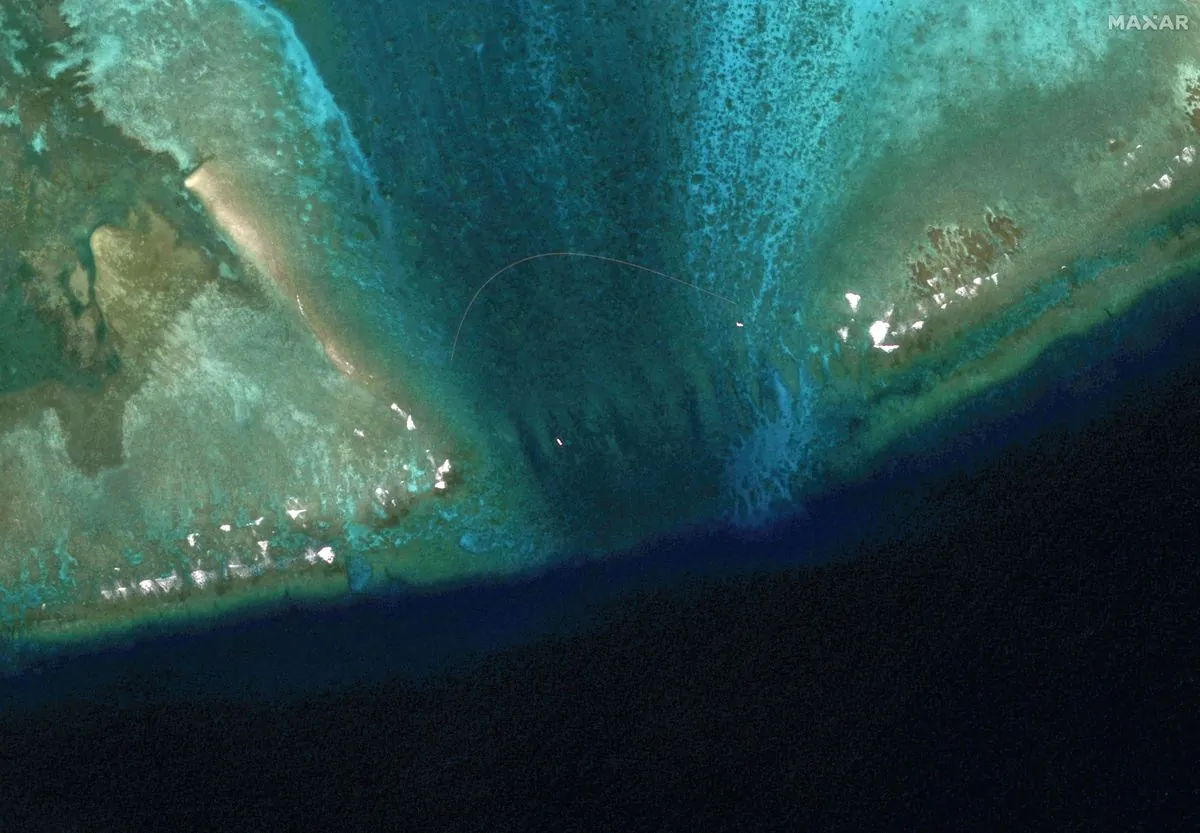Philippines Condemns China's 'Dangerous' Actions in South China Sea
Philippine military denounces Chinese aircraft maneuvers near Scarborough Shoal. Incident highlights ongoing tensions in the disputed waters, crucial for global trade and rich in resources.

The Philippine military has issued a strong condemnation of what it terms "dangerous and provocative actions" by China's air force in the contested South China Sea. The incident, which occurred on August 8, 2024, has reignited tensions in the region, highlighting the ongoing territorial disputes that have long plagued these strategic waters.
According to Philippine officials, two aircraft from the People's Liberation Army Air Force executed hazardous maneuvers and released flares in the flight path of a Philippine air force plane. The Philippine aircraft was conducting a routine maritime patrol over the Scarborough Shoal, an area of significant contention between the two nations.
Romeo Brawner, the chief of the Armed Forces of the Philippines, stated that the Chinese actions "endangered the lives of our personnel" and violated international aviation safety standards. The Scarborough Shoal, located approximately 220 kilometers west of the Philippine island of Luzon, has been a flashpoint in Sino-Philippine relations since China took control of the area in 2012.

The South China Sea, covering an expanse of about 3.5 million square kilometers, is a region of immense strategic and economic importance. It serves as a conduit for over $3 trillion in annual maritime trade, with one-third of global shipping traversing its waters. Moreover, the sea is believed to contain vast untapped resources, including an estimated 11 billion barrels of oil and 190 trillion cubic feet of natural gas.
China's expansive claims in the South China Sea, demarcated by its "nine-dash line" which encompasses roughly 90% of the area, have been a source of regional tension. These claims overlap with those of several Southeast Asian nations, including the Philippines, Vietnam, Indonesia, Malaysia, and Brunei.
In 2016, the Permanent Court of Arbitration in The Hague issued a landmark ruling rejecting China's historical claims to the South China Sea. This decision, initiated by the Philippines under the UN Convention on the Law of the Sea, was dismissed by Beijing, which continues to assert its sovereignty over the disputed waters.
The recent incident near Scarborough Shoal, also known as Huangyan Island in China and Panatag Shoal in the Philippines, underscores the fragile nature of peace in the region. The shoal is not only strategically significant but also economically vital, being a rich fishing ground traditionally used by Filipino fishermen.
"The Chinese aircraft interfered with lawful flight operations and violated international law on aviation safety."
As tensions persist, the international community watches closely. The United States has conducted "freedom of navigation" operations in the area to challenge China's claims, further complicating the geopolitical landscape.
The South China Sea's importance extends beyond geopolitics and economics. It is a biodiversity hotspot, home to over 3,000 species of fish. The ongoing disputes and military activities in the region pose potential threats to this rich marine ecosystem.
As the situation develops, the need for diplomatic solutions and adherence to international law becomes increasingly apparent. The recent incident serves as a stark reminder of the delicate balance required to maintain peace and stability in one of the world's most contested maritime regions.


































